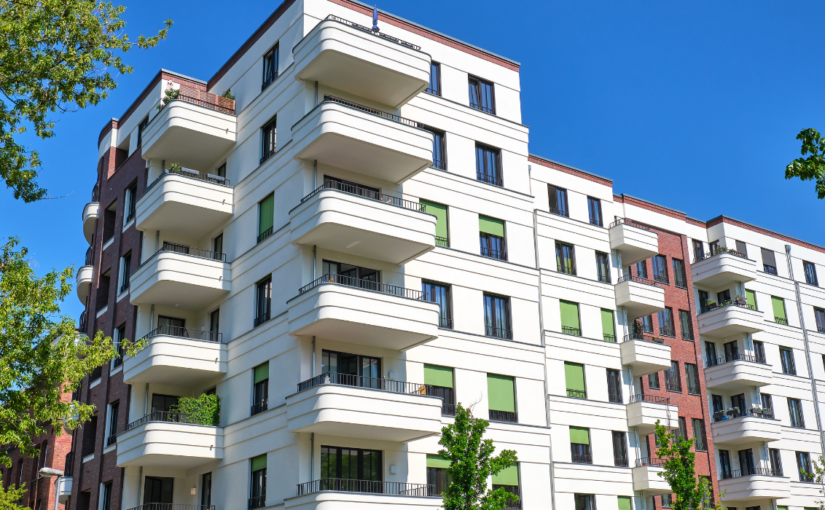back
The different types of multifamily financing options available
01-2023

Different types of multifamily financing options refer to the various types of loans and funding that are available to investors and developers who want to buy, build, or renovate multifamily properties like apartment complexes, duplexes, and townhomes. The terms, prerequisites, and requirements of these types of multifamily financing options can differ significantly, so it’s critical for investors and developers to be aware of their options in order to select the one that is best suited to their particular project and requirements.
Traditional mortgage loans are among the most common forms of multifamily financing. Lenders usually require a down payment of at least 20% of the purchase price for these loans, which are frequently secured by the real estate itself. Both fixed-rate and adjustable-rate mortgages are common varieties of traditional mortgages. As opposed to adjustable-rate mortgages (ARMs), which have interest rates that are subject to fluctuation over time, fixed-rate mortgages offer a constant interest rate for the duration of the loan. For borrowers who desire predictable monthly payments and do not anticipate significant interest rate changes in the near future, fixed-rate mortgages are a good choice. Contrarily, borrowers who anticipate a decline in interest rates in the near future may find that adjustable-rate mortgages are a good choice because they will also result in a decline in monthly payments.
The FHA loan is an additional popular option for multifamily financing. The Federal Housing Administration is backing these loans, which are made to help borrowers more easily meet financing requirements. The typical down payment for an FHA loan is just 3.5% of the purchase price, unlike traditional mortgages. They do, however, also have stricter credit and income requirements, and borrowers might need to pay mortgage insurance. When a borrower has a low credit score or little money for a down payment, FHA loans are a good option. Additionally, they have more accommodating qualification requirements, which facilitates borrower qualification.
Loans from Fannie Mae and Freddie Mac are an additional option for multifamily financing. These federally guaranteed loans are created to streamline the application process for financing for borrowers. They are also appropriate for properties with as few as two units and have more lenient underwriting standards. In contrast to FHA loans, they frequently have lower interest rates but also call for larger down payments. Borrowers who want to benefit from lower interest rates and more accommodating underwriting standards should consider Fannie Mae and Freddie Mac loans. They also provide a range of loan programs, such as the Green Financing program, which offers funding for energy-efficient improvements and renovations.
The FHA 221(d)(4) loan is a final option. For the construction or renovation of multifamily properties, this loan is a low-cost, long-term financing option. Long-term, fixed-rate financing and very low down payments are both available. Developers who want to construct or renovate multifamily properties have a lot of options, but the FHA 221(d)(4) loan can be challenging to get and requires a lot of paperwork. For builders or renovators looking for long-term, affordable financing for a project, this loan may be a good choice. It’s crucial to remember that this loan is only available for new construction or significant rehabilitation projects, and it is only available to specific types of borrowers.
FHA 223(f) loans represent a fifth choice. A multifamily property can be purchased, refinanced, or built with the help of this long-term, fixed-rate loan. Low down payments and flexible underwriting guidelines make it an excellent choice for borrowers with less-than-perfect credit. However, it’s critical to remember that in order for borrowers to be approved for the loan, the property must meet stringent criteria.
Last but not least, a bridge loan is an additional form of multifamily financing. Typically, these loans are used to finance a property temporarily while the borrower finds long-term funding. Bridge loans, which typically have higher interest rates and shorter terms than conventional mortgages, are frequently used by developers and investors to purchase or renovate a property quickly. They can be an excellent choice for borrowers who require short-term financing to buy or renovate a property but anticipate obtaining long-term financing soon.
The best choice will ultimately be determined by the borrower’s unique requirements and needs, the property’s type and location, and the borrower’s qualifications. Before making a decision, it is crucial for developers and investors to conduct due diligence and speak with a professional. Additionally, the market environment should be taken into account because it may have an impact on the types of financing options that are available and their terms. Investors and developers can make an informed choice and obtain the best financing for their project by having a thorough understanding of the various multifamily financing options available as well as their individual benefits and drawbacks.
F2H Capital Group is a debt advisory firm specializing in negotiating the best terms for your commercial real estate projects. The company offers a range of financial products and services, including fixed loans, bridge loans, and construction loans across all asset types. Please contact us for any of your financing needs.

